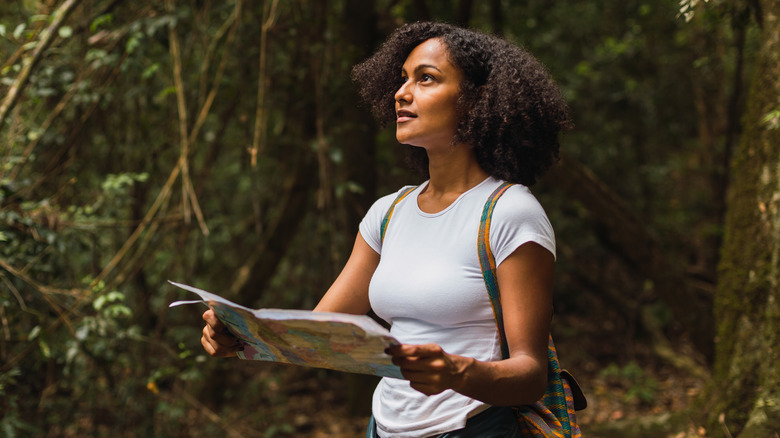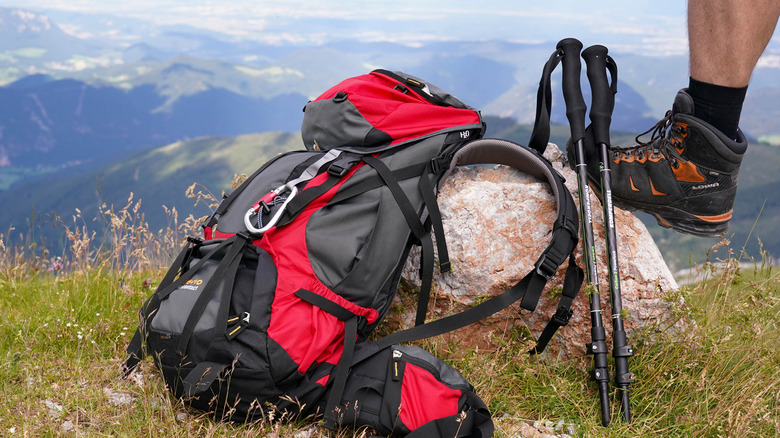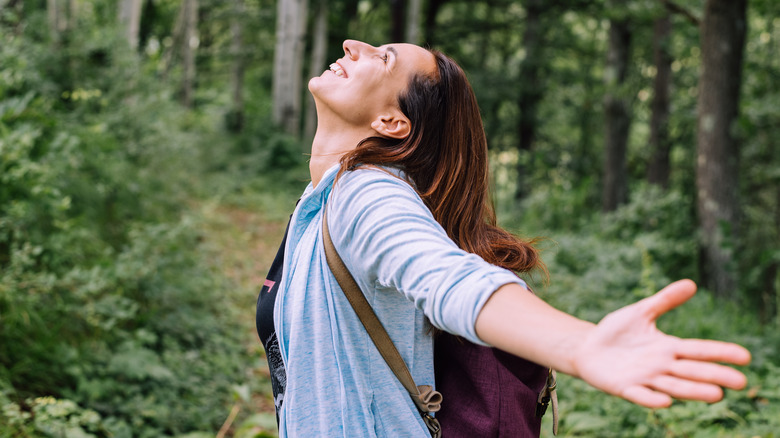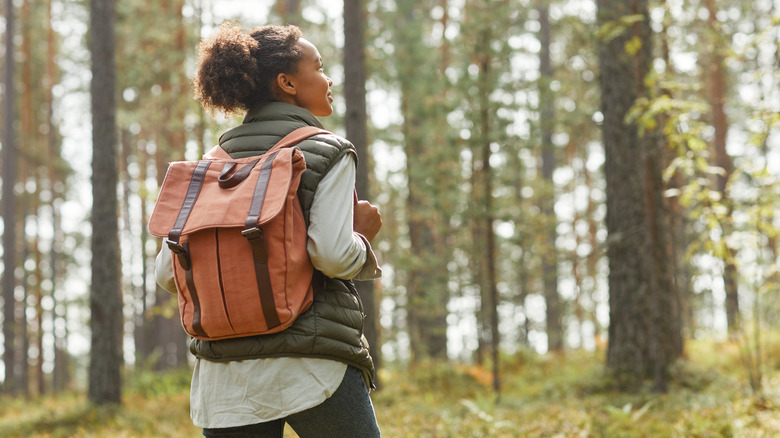Hiking Is Better For You Than You'd Think - Here's How To Get Started
Hiking is an easy-to-access, low-cost, and enjoyable way to get some healthy movement into your day and enjoy a boost from the power of trees. Greater Good reports that trees emit particular organic compounds that improve mental health and contribute to feeling better in general. In fact, some physicians have even started prescribing Vitamin N — nature — to improve overall wellness. The combined benefits of exercise and time spent outdoors make hiking unique among other activities.
Hiking can also acquaint you with your bioregion, the biological and topographic features that define where you live (via Utopia). This includes wildlife like birds, squirrels, lizards, snakes, coyotes, and bobcats. Taking in the natural beauty on the trail will encourage you to become a good steward of the land you share, adds Hiking Guy.
So, if you're ready to take the 52 Hike Challenge and commit to spending some time outdoors every week for 52 weeks, there's no better time to start than right now. Here's what you need to know before hitting the trail for the first time. And "Hello!" in advance — hikers love to say hi.
Pick the right hike for you
Hiking Guy recommends beginners start with a hike less than five miles long with minimal change in elevation. The more you hike, the more you can increase distance and incline. Search for easy trails on the best hiking apps, in which you can also track your progress.
While apps are great, GPS watches are the most accurate should you need assistance. And, of course, you can't go wrong with a paper map.
Find out how long the hike is, then look for up-to-date closure information. This is important after weather events, which can make trails dangerous for hikers.
Invite a friend
Exercising with a pal can help both of you stay motivated and maintain consistency in your new hiking habit, notes the Centers for Disease Control. When you hike with a friend, you're also more likely to try new adventures — perfect for discovering new trails.
Although hiking alone isn't always a bad idea, Sierra Magazine warns that even experienced hikers can be caught off-guard by rookie mistakes. At minimum, tell someone where you're headed and when you aim to return. Even with a buddy, you might want to consider a personal locator beacon to use in case of emergency.
Wear good shoes
Good hiking shoes and boots generally have heftier tread on the bottom to give you more traction on uneven surfaces like gravel and dirt. They come in a range of styles, from all-leather heavy-duty backpacking boots to lightweight barefoot vegan low-top trail runners. Finding good boots is a bit like dating: You gotta try some on before you choose the pair to stick with.
Avoid the newbie mistake of going on a 5-mile hike in footwear you've only tried on in the store — that's a formula for blisters and a rough start to your new habit.
Bring essentials
While you don't need a ton of gear for casual hiking, you do need to be prepared. In addition to properly fitted and worn-in shoes, a backpack, reusable water bottle, and sunscreen are must-haves, even for a short hike. Long pants and sleeves, made from wicking, active-wear materials, can help prevent scratches along the trail, notes Hiking Guy. Stay ahead of changing weather conditions by layering up.
Snacks are great too, but please keep any packaging and food scraps with you. According to Treehugger, trash left on the trail can harm fragile plant and animal ecosystems.
Try forest bathing
If you finely turn your attention to the surrounding nature on your hike, you can transform your trek into shinrin-yoku, the Japanese art of forest bathing (via LiveScience). This mindful practice differs from just any ol' hike because it asks you to soak in the surrounding flora and fauna using all of your senses. What do you smell, hear, and see?
Exploring the outdoors in this way can actually improve your psychological well-being. Research published in the Environmental Health and Preventative Medicine journal demonstrates that forest bathing can reduce blood pressure, promote healthy functioning of the immune and autonomic systems, and even relieve symptoms of depression.
Practice trail etiquette
If you're practicing shinrin-yoku, you likely won't be blasting tunes and holding court. But if you do decide to make your hike more playful than reflective, follow Hiking Guy's advice: Have respect for other hikers and the hike itself.
Stay on the trail as marked, follow any rules posted (including leash laws), and leave the surrounding environment exactly the way you found it.
Say hello to others and allow faster-paced hikers and cyclists to pass on your left. By understanding how things work on the mountain, you'll be less likely to be caught off guard, making your hike more enjoyable.






